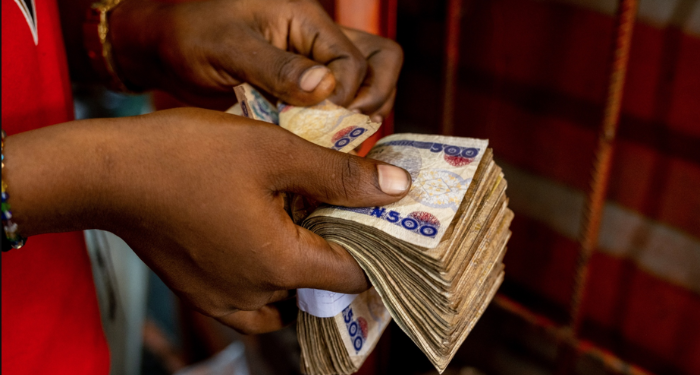At least 83% of the beneficiaries of the Nigerian government’s cash transfer program, funded by an $800 million World Bank loan, are located in urban areas.
According to a document on the National Social Safety Net Program-Scale Up (NASSP-SU) project obtained from the website of the World Bank, over three million poor and vulnerable households have received cash transfers as of May 2024.
This total includes 700,000 rural households and 2.5 million urban households, indicating a significantly higher number of beneficiaries in urban areas.
The document read: “Progress has been slower than anticipated due to delays in declaring project effectiveness and the approval of the external borrowing plan by the National Assembly to commence project activities (October 2023).
“Since its start, about 30 million beneficiaries have been covered by social safety net programs, and about three million poor and vulnerable households have received shock-responsive cash transfers as of May 2024. Of these beneficiaries, 700 thousand households were from rural areas and about 2.5 million households were from urban areas. 1,652 urban wards have been covered through the targeting system developed under the project.
“Furthermore, the planned digital payment delivery mechanism has been put in place, using straight-through-processing to deliver transfers directly to beneficiaries’ accounts or wallets. Recently, the National Social Register (NSR) is being integrated with the National Identification Number (NIN) to further strengthen the targeting system.”
Cash transfers reached about 20% of the household target
To cushion the impact of reforms, especially the removal of fuel subsidy, on the poor and vulnerable population, the government announced support programs in October 2023, which include the temporary cash transfer program for poor and vulnerable households.
Under this program, the government plans to reach 15 million households with N75,000 per household provided over three-monthly payments of N25,000 each.
The government decided to utilize the NASSP-SU project to finance the roll-out of the cash transfer program and strengthen the safety net delivery platform while laying the foundation for future shock response programs.
However, although the government targeted 15 million households, only about three million households have benefitted from the cash transfer program, which is about 20% of the target.
Project’s high risk
The World Bank rated the project as highly risky, with the task team recommending that the project should suspend field activities with the team working with the government to conduct a Root Cause Analysis and prepare a Safeguards Corrective Action Plan.
The document noted: “The Overall environmental and social performance is moderately satisfactory, and the overall risk rating remains substantial. The Environmental and Social Management Plan (ESMP) to mitigate the risks envisaged under the project has been prepared and disclosed in-country and on the World Bank’s external website.
“Two fatal incidents involving project staff were recorded. A project staff returning from conducting field activities was involved in a road accident and another project staff was murdered in his residence by suspected armed bandits. The project reported another road accident involving a project staff during a field exercise that resulted in leg injuries.
“The task team has recommended that the project suspend field activities and is working with the government to immediately conduct a Root Cause Analysis and prepare a Safeguards Corrective Action Plan. The project has commenced preparation of a Security Risk Assessment and Management Plan which will advise on the adequate measures the project actors and stakeholders will employ to mitigate security risks. The task team will continue to monitor these risks closely with the government to ensure the safety and well-being of all staff and stakeholders.”
What you should know
- The World Bank earlier said that cash transfers can help save Nigerians from intergenerational poverty traps as inflation and low economic growth adversely affect the poor.
- It said that inflation and low economic growth would add 2.8 million people to poverty by the end of 2023.
- It was also disclosed that an estimated 37.5% of Nigerians live below $2.17 per day (international poverty rate) while about 70.4% of Nigerians live below $3.65 per day (lower middle-income poverty rate) in 2023.
- According to the multidimensional poverty report of the National Bureau of Statistics (NBS), the number of poor people living in rural areas is estimated at 105.98 million, while 26.94 million people are poor in urban areas in 2022. This means that there are more poor people in rural areas.
- However, inflation is higher in urban areas. For instance, in May 2024, urban inflation in Nigeria stood at 36.34% on a year-on-year while rural inflation in May 2024 was recorded at 31.82%.















